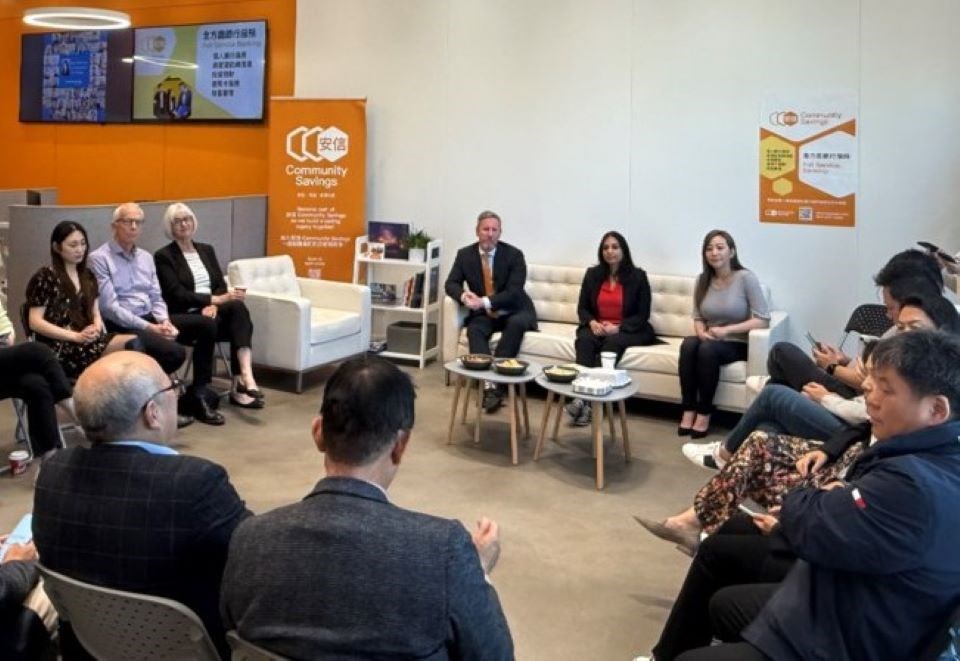Members of a Richmond financial institution that specializes in serving people with diverse cultural needs recently had a chance to bring their concerns to B.C.'s deputy premier.
AnXin Community Savings, a branch of the 80-year-old Community Savings credit union, held a roundtable event with its members and special guest Deputy Premier and Attorney General Niki Sharma to talk about issues people face daily.
Katrina Chen, president of AnXin and former Burnaby-Lougheed MLA, said the event opened up discussions not only about the financial uncertainties of the public, but other social uncertainties in life as well.
"This was the first time we tried to see how our members would like engaging with elected officials to talk about issues," said Chen.
Among the topics, affordability, racism and a sense of belonging were the biggest concerns that were raised, she explained.
One member spoke about her daughter and friends graduating and entering the workforce only to find it difficult to financially sustain themselves with the high cost of living.
"The job market is really competitive. It's really hard for young people and even with (their) salary, it's really hard to afford a place to live or to rent, so they end up staying at home," said Chen.
"Affordability affects every community, the same as the Chinese-language speaking community."
Chen told the Richmond News that AnXin is member-owned and is highly regulated by the BC Financial Services Association.
"This is why we thought it was a good idea for provincial government representatives to engage with us, especially Niki Sharma, who was on the board of Vancity as well," she said.
Discussions also touched on how credit unions could help by giving back to the community.
"Can we support projects like affordable housing, like a circular economy? Like, how can the money we make from our members be used to give back to them and local families?"
AnXin has welcomed more than 160 members since opening in October and is looking to connect more with the public on "social purpose values," Chen added.
"The meeting was really focused on social purpose, but at the same time also talking about potential opportunities to not only support our particular branch, but really the whole credit union sector that the government hasn't really paid a lot of attention to," she said.
"There have been a lot of reforms and chances, but we also think it's time, with the threat of the tariffs, that we can also look at our local banking."
Chen described the financial sector as a "hierarchical colonial system" that was not created with diversity.
"There's no diversity or equity in mind in this system, but through this credit union initiative, even though we're still fitting into the current financial regulations and framework, we really want to be able to create products and services that work for our members."
This means creating solutions for dealing with how different cultures handle finances.
Some cultural situations involve families where women rely on the men for finances, a key elder has passed away, or a divorce is happening. In these cases, money is shared, and no one else has financial control or a credit history.
"Those are the scenarios that we're looking at to see how we can support our members," said Chen.
"We are creating this together, so it’s a learning curve for us.”
- with files from Maria Rantanen
📣 Got an opinion on this story or any others in Richmond? Send us a letter or email your thoughts or story tips to [email protected].
📲 To stay updated on Richmond news, sign up for our daily headline newsletter.
💬 Words missing in article? Your adblocker might be preventing hyperlinked text from appearing.



